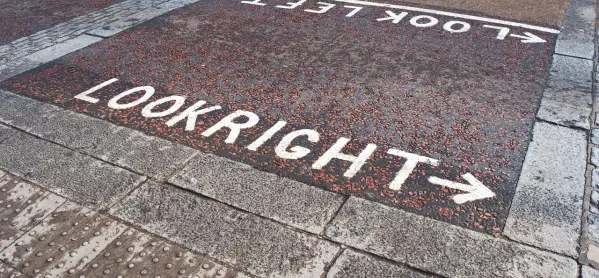Being a teacher in a primary school can look really different, depending on where in the school you teach. Year 6 and EYFS can feel a world away from one another. Hell, Year 2 and EYFS can feel a world away from each other.
And yet, we are qualified - on paper anyway - to step into any of those classrooms and teach the children in there.
But, do we ever really leap from one key stage to the next, or even between adjoining year groups? Should we move around year groups and age phases more? Does it matter?
Moving year groups
It’s quite easy to end up staying as a teacher in the same year group for a while, and part of me thinks, “Hey, if it ain’t broke…”
I spent most of my own full-time class teacher years in Year 6 and I loved it. I still do - I teach Year 6 every day - and if I’m honest, I think I subconsciously see myself primarily as a Year 6 teacher, whatever that means…
I guess it’s just where I think my strengths lie. The whole “Year 6 teacher” thing is an interesting concept, though; you don’t often hear people identifying themselves or being labelled as a “Year 5 teacher” or a “Year 3” teacher, do you? Certainly less so at least. Is it because Year 6 is seen as being quite different, dare I say it, because of the Sats? I’m not sure.
Here’s another thing you don’t hear much: “EYFS teachers need to spend some time in Year 6.”
I feel like the “all teachers should spend some time in EYFS” argument is pretty well-known and embedded now - and I strongly agree with it, too, by the way - but why doesn’t the flip side get pushed as much?
In my experience, EYFS teachers are the teachers that move about year groups least often. I have no data on that - it’s purely an observation. Maybe it’s because it’s seen as more of a specialism than teaching in the other year groups. It is pretty different after all.
Staying in the same year group for some time can be a positive or a negative, depending on how you look it at it. I generally think that giving teachers at least a couple of years in the same year group can be a positive decision because it allows them to consolidate their first year and is also a plus in terms of workload.
Some go further than that; headteacher and Tes columnist Michael Tidd reckons that spending the first seven years in the same year group allowed him to get really good at teaching.
Broad experience
On the other hand, many see moving between different year groups as a positive - it gives you a wide range of experience.
And if you step up to leadership, shouldn’t cross-year group experience be crucial?
Some people definitely think that to be a headteacher, you need to have taught in all age phases - EYFS, KS1 and KS2 - and I can see the argument here. I mean, having a headteacher with experience of teaching the whole way across the school could be advantageous.
For me, though, it’s not a dealbreaker. I know that just because a teacher hasn’t, say, taught in KS1, that does not mean they wouldn’t make a great headteacher. School leadership just isn’t that simple, is it?
Leadership credentials
Perhaps the net needs to be widened here so it’s not just down to the headteacher to have all the experience of different age groups. As Rhoda Wilson, KS2 leader and Year 6 teacher, puts it: “it’s not necessary as long as you have good senior or middle leaders that have. I’m more inclined to think that the leadership team should have a wide representation.’
This seems a lot more do-able.
I’m personally never likely to teach in EYFS- I’d probably be more at home in a Year 7 classroom - but that doesn’t mean that I couldn’t build up more experience in that area. Last year, I asked for that to be one of my performance management targets and I spent more time in EYFS working with children, worked with our EYFS leader and helped with moderation and, while that doesn’t make me an EYFS teacher, it has given me a lot more knowledge of that age phase.
I wouldn’t want that to count against me if I decided to move into headship one day and actually, I genuinely don’t think it should. Moving between year groups and phases can give you different experiences, but it doesn’t automatically make you a better teacher or leader.
Claire Lotriet is assistant headteacher at Henwick Primary School in London. She tweets at @OhLottie





